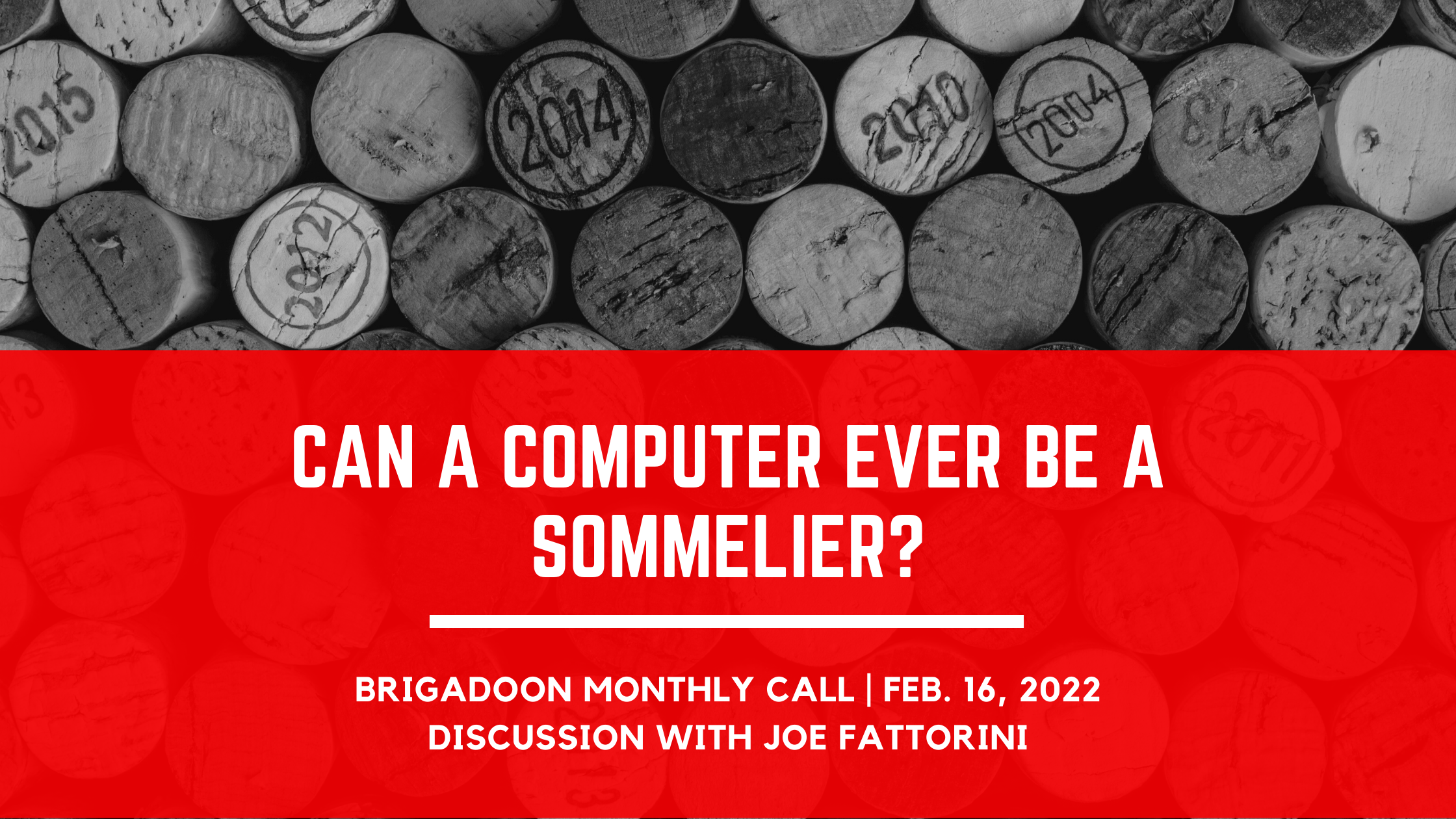Recorded in February 2022, a Brigadoon Monthly Call with Joe Fattorini.
Joe is Managing Director + Behavioural Science Lead @ PixWine and known around the world as "Obi Wine Kenobi", the expert presenter on The Wine Show.
Between researching his MPhil on Food & Religion and teaching Structuralist Food Theory and Hotel Valuation Models, Joe wrote the world’s first textbook on selling and marketing wine in restaurants. A book still used in universities over 20 years later.
In 2016 he was a nominee for the Wine and Spirit Education Trust Outstanding Alumni Award. This is a new annual accolade to celebrate a WSET Diploma graduate who is notably contributing to the industry.
You can follow Joe on Instagram here.
Shownotes:
Obi Wine Kenobi runs Marathon du Médoc.
PixWine: Pix is the world's first wine discovery platform with a simple matchmaking mission: to pair people with bottles that bring them joy.
Wine choice is situational: "Middle-aged English businessmen, their palates apparently changed at Waterloo Station."
Stated preferences vs. Revealed preferences
Social capital is "the networks of relationships among people who live and work in a particular society, enabling that society to function effectively." In The Forms of Capital, Pierre Bourdieu distinguishes between three forms of capital: economic capital, cultural capital, and social capital.
James Bond has saved the world and beaten the bad buys because of his wine knowledge.
James Bond: The wine is quite excellent. Although for such a grand meal, I would have expected a claret.
Mr. Wint: But of course. Unfortunately, our cellar is poorly stocked with clarets.
James Bond: Mouton Rothschild IS a claret. And, I've smelled that aftershave before, and both times - I've smelled a rat.
-- Diamonds Are Forever
Read: Causality: Models, Reasoning, and Inference - Judea Pearl
"A lot of people aren't looking for the best wine; they are looking for the guaranteed not shit one."
Binge-watching Netflix for a living: How a Netflix tagger helps you discover new shows: The good, the bad, and the boring kids' stuff of metadata analysis for a streaming service. Toms Guide
The most magical place on Earth: Inside the great NBA bubble experiment. GQ - Taylor Rooks
What is mimetic theory? COV&R
Read: Wanting: The Power of Mimetic Desire in Everyday Life - Luke Burgis
Explore vs. Exploit
How people decide what to buy lies in the 'messy middle' of the purchase journey Google
Google's new 'messy middle' — what's it all about? Nick Barthram
Monty Python: The upper-class twit of the year YouTube
Veblen good: Type of luxury good for which the demand for a good increases as the price increases, in apparent (but not actual) contradiction of the law of demand, resulting in an upward-sloping demand curve. The higher prices of Veblen goods may make them desirable as a status symbol in conspicuous consumption and conspicuous leisure practices.
The Theory of the Leisure Class: An Economic Study of Institutions (1899) is a treatise of economics and sociology written by the Norwegian-American economist and sociologist Thorstein Veblen.
The 1855 Bordeaux Classification: The ranking system put in place by Napoleon III still influences today's market. Wine Spectator
Decanting the meteoric rise of Whispering Angel: Sacha Lichine teaches us all to embrace La Vie En Rosé. Gentleman's Journal


